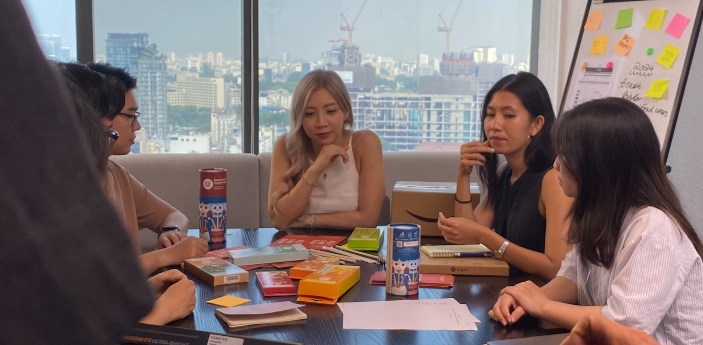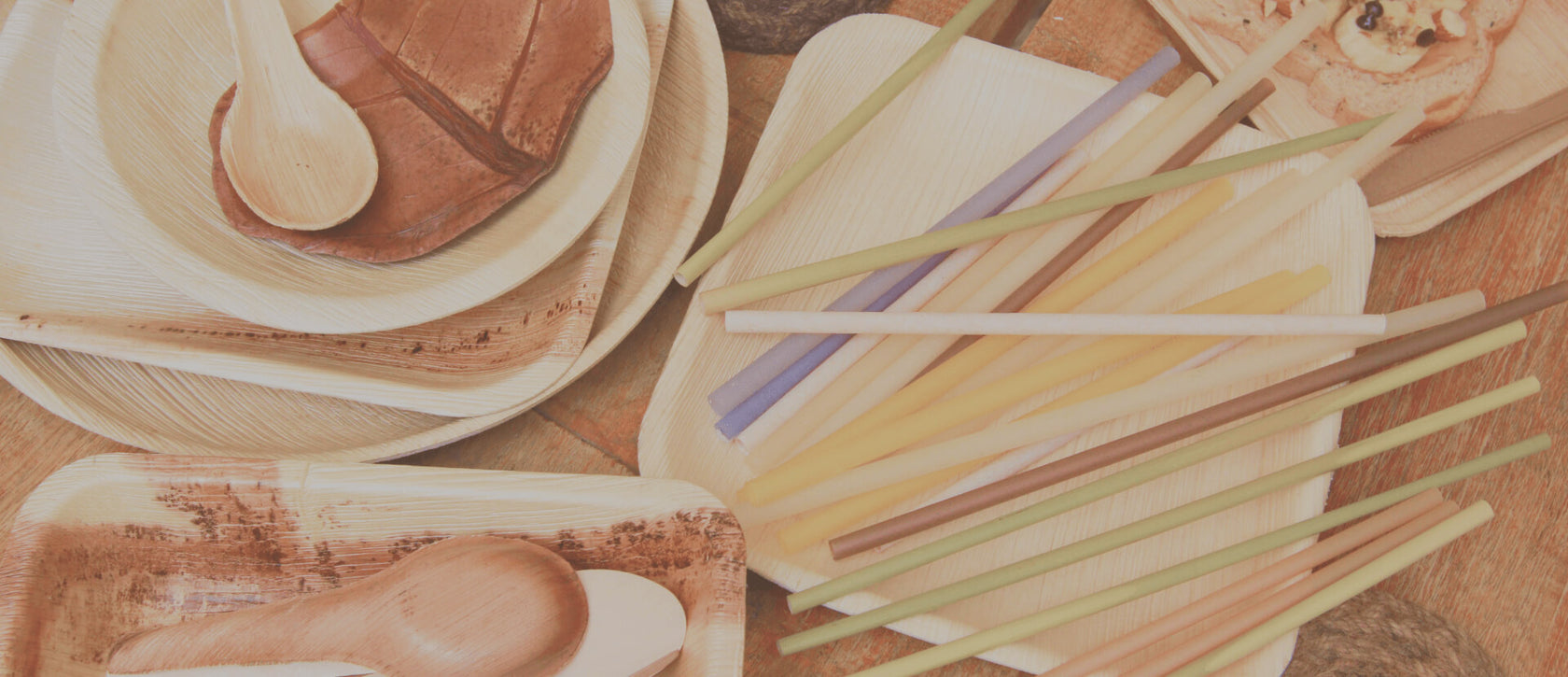In the vibrant ecosystem of Vietnamese startups, one name stands out for its unwavering commitment to environmental sustainability and innovative solutions – Marina Tran-Vu, the visionary Founder behind EQUO. The recent feature on DealStreetAsia sheds light on how Marina's entrepreneurial journey is not just transforming the landscape of eco-friendly products but contributing significantly to the broader conversation on sustainability.
Marina Tran-Vu: Paving the Way for Sustainable Alternatives
Marina Tran-Vu's journey as an entrepreneur is marked by a deep-rooted commitment to making a positive impact. The article highlights how Marina's dynamic leadership has positioned EQUO as a pioneering force in the fight against single-use plastics. Her vision goes beyond business success; it embraces a larger mission of fostering environmental responsibility."...as a woman, more often than not, you will have people saying you should be indefinitely grateful or indebted to them for their assistance or investment," Tran-Vu said during an interview for DealStreetAsia's upcoming report on female founders in Southeast Asia.
Excerpts of the interview:
What led you to become an entrepreneur?
I had not set out to be an entrepreneur. I wanted to start a side business to solve the plastic pollution problem. What sparked the idea was when I saw a grass straw in my drink at a cafe while first exploring Vietnam. My background is in marketing — I used to work for companies like Unilever, Bacardi and LG — and part of marketing is figuring out why consumers do what they do.
I hadn’t seen this [grass straw] over in North America. So I wondered why this was not widely available and why people were not buying it. I started to research a little bit more and found that these products had existed for decades in Southeast Asia, but they weren’t being bought for a variety of reasons, including education and lack of awareness. So that is really what started the journey.
What has kept me on that entrepreneurship journey is seeing the impact we have had as a business. The biggest thing is that we are educating people for the long term, making them aware of the different natural materials that are available, and making a difference to future generations. My nephew was born, which gave me much more motivation to continue because I wanted him to live on this planet and not have to move to Mars or some other planet.
Finally, I saw a lack of representation of female founders in the startup industry. I saw a lot of interesting statistics, and not only did I see them, but I also experienced them. Less than 3% of all private funding goes towards female founders, including solo female founders and female founding teams, which is ridiculous. That number jumps by six to eight times when you add a male co-founder. And then the rest of the funding goes towards male-only teams. I felt it was part of my journey to be able to try to explore why that was and to bring attention to it wherever I could.
You started the company in the middle of the pandemic. What were the challenges you faced?
The biggest challenge was being able to communicate and pitch your idea online. The second thing is building those relationships, as I have not previously started a company or raised money. I was a new face.
There is only so much you can learn, and there is a ceiling on how well you can build relationships online. I took advantage of online pitch competitions and tried to pitch basically everywhere I could, including on Clubhouse. That made me learn a lot faster in terms of pitching.
Another thing is that during the pandemic, tech became much more prevalent in terms of its importance in people’s lives. Because of that, there was a propensity to invest more in tech-based businesses, whether or not they were making money. Of course, we are now seeing a correction in the market.
How challenging was fundraising specifically? what helped you in the process?
My entire fundraising journey was about 9 to 10 months, from learning about funding and going out and talking to people until closing the round. It was very difficult. The only thing that really helped a lot was the mentorship and the network, and I had not realised how important that was for you to raise money.
This is probably one of my biggest concerns about this entire environment. Unless you know someone, it is very difficult to raise money. You have to build your network, and you have to know someone who knows someone. The easiest thing for me was to get referrals. I knew someone from high school, and he had a wildly successful startup. He mentored me and introduced me to people, including Techstars.
I got into the Techstars accelerator, and the programme introduced me to other people and angel investors. I also went to different pitch competitions. And that’s how I met some other investors.
It is a lot about luck, hard work and knowing the right people, which I was fortunate to have. If you don’t have it, that makes it extremely hard to raise any funding, regardless of how great your startup or idea is. If you do have it, as a woman, more often than not, you will have people saying you should be infinitely grateful or indebted to them for their assistance or investment. I am sure male founders aren’t subject to this nearly as much. An investor recently told me, “You don’t seem to understand. The only reason you got any other people to invest in you is that they are my friends, and they know me."
Did you find it harder to raise capital as a solo female founder?
Yes, 1,000%. As a solo founder, I don’t think you would ever get as many questions, suggestions, or advice as I did. “You need to find a co-founder, or it won’t work”, was the message time and time again, at least for the first six months. It got less frequent as I started to build my team.
As a female solo founder, it is even worse. I sometimes got ridiculous questions.”Are you married? What is going to happen if you decide to have children? How do you deal with stress? Do you have someone to talk to about it?” Even if I choose to have a family or whatever else, that will not impact my ability to manage my business. It was shocking, and sometimes, these questions were broadcast publicly.
Do you think it would have been different if you had a male co-founder?
Much different. I will admittedly say this because I’m very aware of it. In many cases, I have had to overcompensate for a male personality or skill set I don’t have. I would say I have a more outgoing personality than average, and in some cases, it was not received so well. I was told I have a very strong personality, but I think I had to be that way because I don’t have anyone else to back me up.
A male founder can get a lot away with a lot by having a certain amount of charisma or talent in presenting [the pitch]. I don’t think I was given that flexibility as much.
Do you think fundraising in the current environment is going to become harder for female founders?
During the pandemic, investing in female founders was almost a novelty. Investors felt they needed to tick that box. Nowadays, there is a much more conscious effort to support female founders, and people have said they are ready to make leeways. I’m not sure if that’s a good thing, but they have said to me in many instances, “Yes, we’ll make an exception because you are a female solo founder, and you do something incredible in the area of sustainability. So, we need to be a little bit more lenient in terms of the criteria when it comes to looking at you as an investible business.”
I would also say that people are starting to see, and statistics show, that female-founded organisations have a higher success rate. Female founders are also a lot more attentive when it comes to spending, so if you give them funding, they are more likely to spend less over a certain amount of time or ask for a lot less than their male counterparts. I think people now understand that female founders are safer investments.
What advice would you give to other female founders?
The biggest advice I would probably give is to be yourself. They shouldn’t have to feel like they have to change their personality or be a little more like this or that primarily because, unfortunately, the numbers are stacked against them. Being yourself is the best way to go about things but know where you need to tweak your behaviour and improve.
What worked for me, and I don’t know if this will work for everyone, was being transparent about what I knew and did not. I know that’s the opposite of what people tell you: you must fake it until you make it. I think that’s correct in certain circumstances, and as a female [founder], you should know your facts and data points. But if you don’t know something, don’t pretend you do. Unfortunately, I think as women, we often tend to take the brunt of it and try to make up for the inherent gender bias with this attitude of ‘I need to know everything, or at least pretend I do’. It’s not necessary. Say, ‘I don’t know, and I’m going to learn it’. I think a lot of investors will appreciate the vulnerability and candour.
The second thing is mentorship. It is tough for women to ask for help or let people know that we are struggling because we try to be superwomen, especially as entrepreneurs. It is okay to ask for help or advice; sometimes, we forget that.
What can the VC industry do to solve this?
I think they can do two things – one, acknowledge their bias or potential bias and two, understand how they contribute to the gatekeeping of funds.
The question that many VCs or investors need to ask themselves is, would I ever ask a solo male founder, a male founder or even a mixed founding team the exact questions I am asking a sole female founder? Why or why not? There was an interesting study that showed that female founders are often in discussions where they are put on the defensive, whereas male founders are not. So VCs need to be aware of what questions they are asking the founders and how.
The second thing is to understand why they gatekeep funds from female-founded startups. The biggest reason, I would say, is that VCs won’t publicly acknowledge it, but they are often concerned about our personal lives – how old we are, the stage of life we are at, etc. If that is the case, perhaps there is a way to resolve this. Perhaps, I can allot some funds that will only go to certain founders because I know the cards are stacked against them. I think that is much better than just saying we prioritise [diversity], and yet, a majority of the funding pie still goes to male founders.
What factors should investors consider in a startup founder, regardless of gender?
The biggest one is the attitude toward learning and growth. I asked an investor why they were not investing in this seemingly great startup that was going to be profitable soon and had great technology. He told me the startup had a great team and everything they were looking for. However, they saw one red flag in their meetings with the founders – they seemed uncoachable and did not appear to want to learn or take advice.
If founders are like that, you are putting a cap on your business as a startup in terms of how much you can grow. The biggest thing to exhibit is that you can learn and acknowledge mistakes and grow from them. And that you’re not above, regardless of your expertise, and are not above learning and being coached. So, I would say that’s the first thing.
And then the second thing is having, hopefully, a reason outside of money for your business. I don’t mean how much money you will make, but the biggest one I would say and point out now is outside of valuation for your company. What are you focusing on for your business? If your most significant thing is how much valuation you can get for your business before an IPO for selling, it will be a tough road for you. That has been exhibited time and time again by startups that have suffered immensely in the past year or so.
How do you think being a female entrepreneur has influenced your leadership style or approach to management?
The biggest way it has influenced me is to have more compassion in my leadership style. Earlier, I was probably more heavy-handed as I needed to prove myself. I’m very lucky that now there are like a lot of female leaders out there who have said that you can show empathy in the workplace. And that you can focus on personal and family space and still be a strong female leader. That impacted me a lot, and now I have more empathy for my team.


